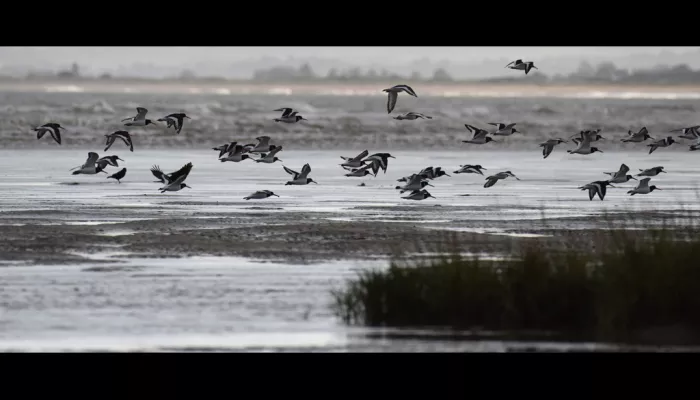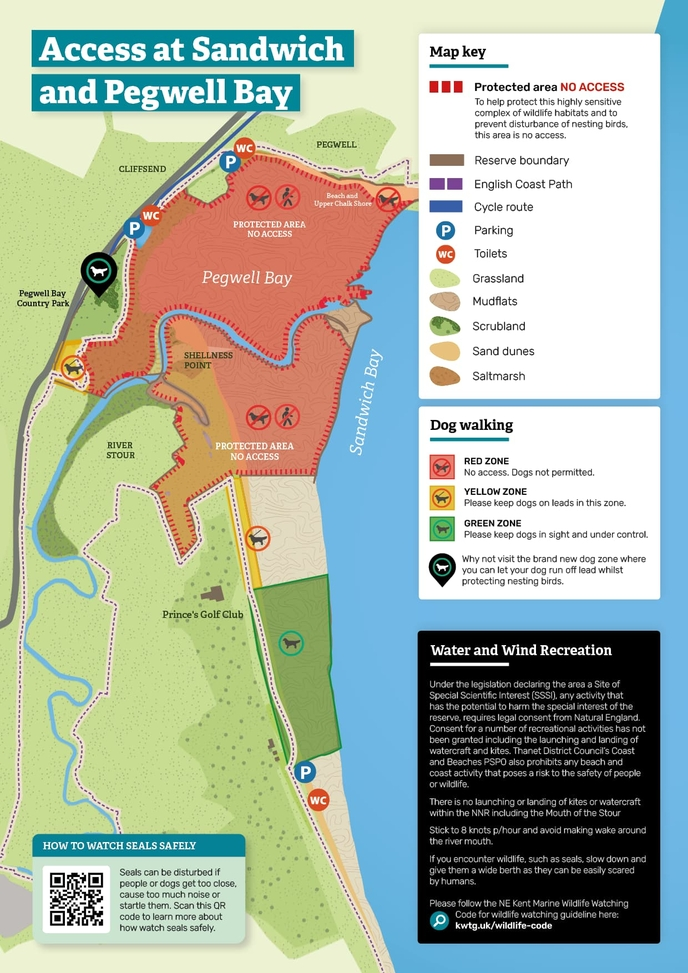About the reserve
This complex mosaic of habitats holds many internationally important and rare plants and animals. In the spring, migrant birds such as nightingales, cuckoos and warblers arrive on the reserve to breed.
In summer, visitors such as oystercatchers and ringed plover nest on Sandwich Bay’s shingle beach. Meanwhile butterflies enjoy the duneland flora and its many rare species such as lizard orchids and Deptford pink.
In the autumn and winter, seals can be seen from the end of Stonelees, just after the Country Park. During these colder months, we also see the biggest influx of waterfowl and waders such as dunlin, sanderling and grey plover, feeding in the saltmarsh and recovering from their long migrations.
Sandwich and Pegwell Bay National Nature Reserve (NNR) is important for breeding, migrating and wintering birds all year round. Its rich feeding grounds are a vital stop during the epic migrations of birds, some of which cover thousands of miles.
Worryingly, many bird species numbers have fallen steeply here. Little terns have stopped breeding and ringed plover chick numbers have declined sharply. We have also seen increasing pressure from recreational activities in parts of the bay that need to remain undisturbed for wildlife
Human disturbance harms birds' chances of survival
When we cause birds to move or fly up, it might not seem serious, but impacts include:
- Missed feeding opportunities
- Difficulty feeding chicks
- Wasted energy
- Loss of condition before long migrations
- Relocation to overpopulated sites with less food
- Reduced breeding success
We can all take simple steps to share the bay responsibly and help the remarkable wildlife of Sandwich & Pegwell Bay National Nature Reserve to recover and thrive once again. No matter how you enjoy the reserve, whether this be walking, cycling, birdwatching or wind sports, there are ways you can enjoy this special place while minimising harm to threatened bird species.
Please DO these things:
- Do stick do the designated access routes and avoid entering restricted areas such as the mudflats and saltmarsh.
- Do keep your dogs off the mudflats, saltmarsh and upper chalk shore (see map). Please do not let your dog chase wildlife.
- Do follow the voluntary agreements for kite surfing and bait digging (see map).
- Do clean up after your dog and take your litter home or put it in the bin.
- Do give wildlife space. We can cause animals to waste energy reserves, miss out on food and even abandon nests and chicks.
Avoid doing these things:
- Don’t forage. Commercial cockle collection can be reported to Kent & Essex IFCA: 01843 585 310.
- Don’t use drones.
- Don’t use the area for metal detecting.
- Don’t horse ride at Pegwell Bay. At Sandwich, avoid the Restricted Area and grass/wildflowers by using the beach.
- Don’t disturb seals in the water or resting on the estuary sand banks. Give them a wide berth as they can be easily scared by humans.
- Don’t disturb roosting and breeding sites by use of personal watercraft. Keep to the navigational access route to and from Sandwich.
Contact Us
If you need to get in touch regarding Sandwich and Pegwell Bay, for any reason, please contact:
John Wilson
Contact number: 07808568821
Contact email: John.Wilson@kentwildlife.org.uk
Environmental designation
- Country Park
- County Geological Site
- Local Nature Reserve (LNR)
- National Nature Reserve (NNR)
- Natura 2000
- Ramsar
- Site of Special Scientific Interest (SSSI)
- Special Areas of Conservation (SAC)
- Special Protection Areas (SPA)


